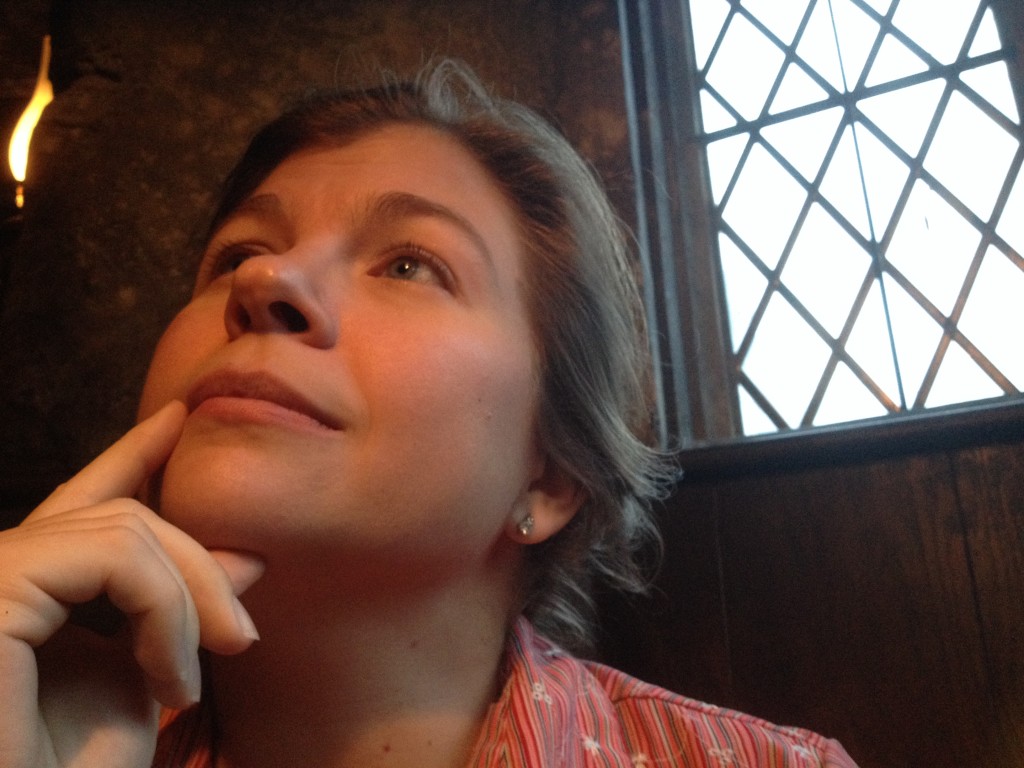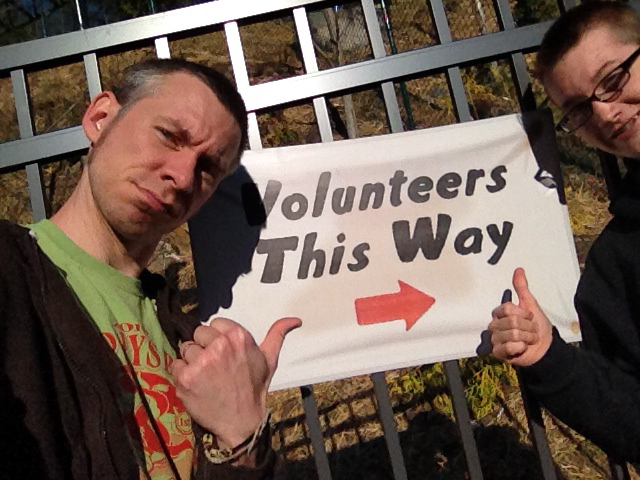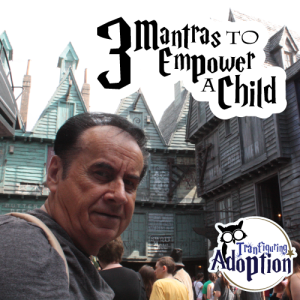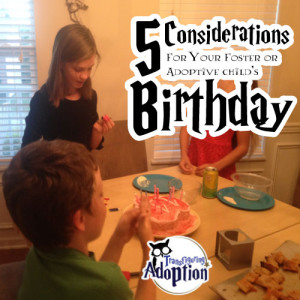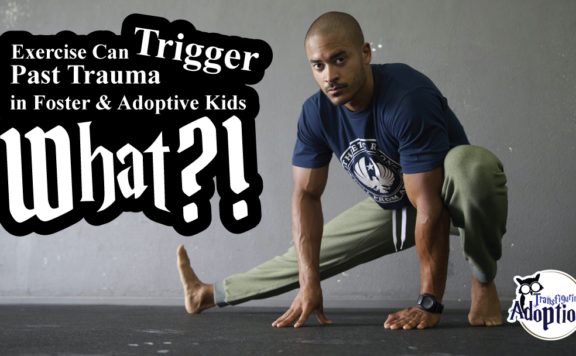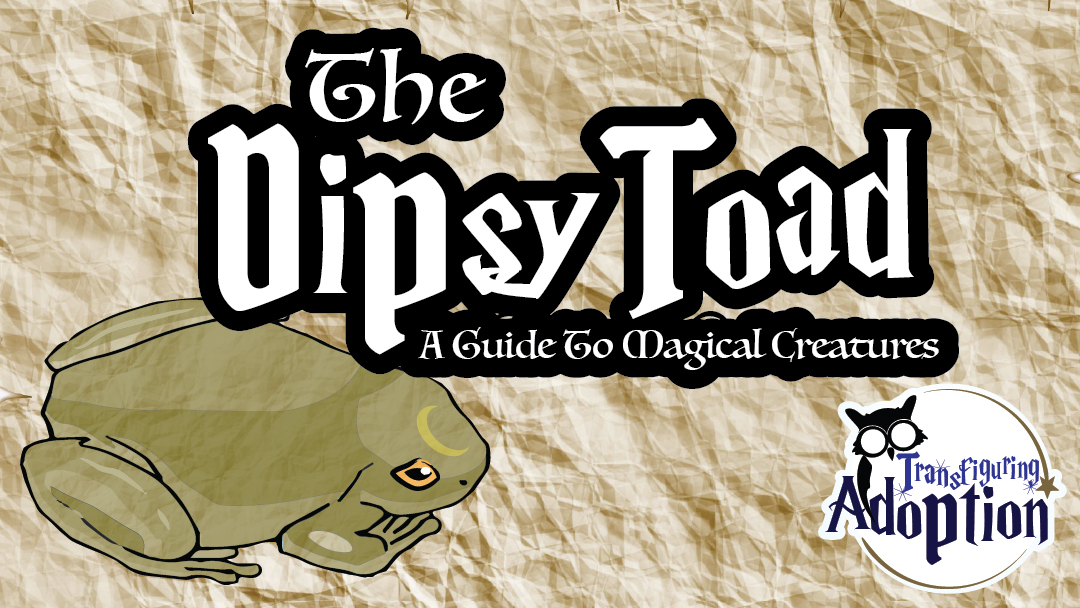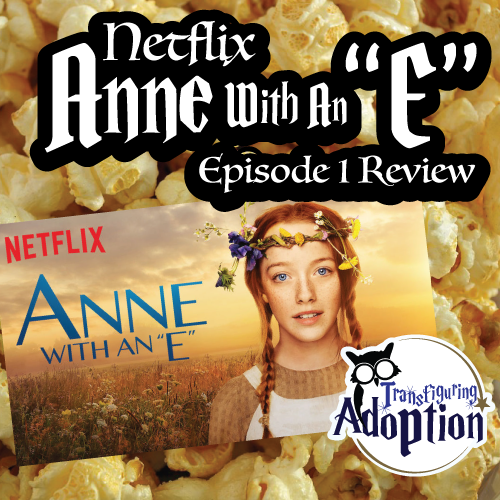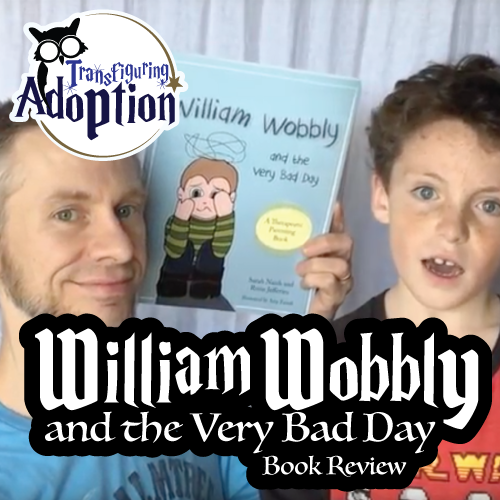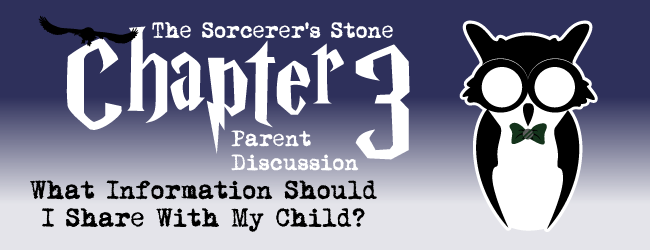
After reading this chapter of Harry Potter and The Sorcerer’s Stone with my children, I feel that the fear and anxiety of Uncle Vernon and Aunt Petunia was almost palpable. The anxiety came out of no where too. I mean one second Uncle Vernon is taking pride in his biological son donning his school uniform and following in his footsteps to Holy Cow the crazy magical people have found us.
To follow a short rabbit trail, I can’t count how many times our family has been in a similar situation. We are having a glorious Saturday morning at the breakfast table. The sun is shining, the chocolate chip pancakes taste delicious, and everyone is silly with laughter and smiles. Then all of a sudden we discover that someone has eaten two tubs of frosting out of the pantry (or worse a bar of soap or deodorant) or we discover that someone has forged our signatures on several school papers. At that moment, it’s like the happy morning was a glass mirror, and you can see the stone of reality busting it to pieces.
However, the Dursleys have helped in creating the situation they are in at the moment. We know from this chapter that they had originally promised to stomp out all the “nonsense” from Harry and have kept information from him. As we just discussed in the chapter 3 kids’ discussion, not letting Harry read the letters just makes his curiosity all the stronger. The rest of the chapter is a maddening and somewhat hilarious journey of the Dursleys striving to keep order by not allowing Harry to learn the message within the letters and ending with Uncle Vernon isolating the family on an island.
As foster and adoptive parents, we will never have to be concerned with telling our kid(s) that they are a witch/wizard. However, with kids from hard places come difficult stories and a lot of issues. What should you share with your child?
- Always Tell Them The Truth
They have had enough happen to them in life, so give it to them straight. We’re trying to build a trusting parent/child relationship; the kid(s) need to know that you’ll trust them with the truth no matter what it looks like. However, sometimes giving it to them straight means telling them the G-rated cliff notes and letting them know that details will be coming to a conversation near them when they have gotten older. - You Don’t Know Everything
Make sure that your kid(s) know that you don’t have all the information about their past. Sometimes they really think we know everything and might be holding back information from them. Let them know why you don’t have all the information about their biological family. - What Do You Say About Bio Mom and Dad?
My wife and I treat this similar to the way a divorced parent has to come at the situation; speak as positively as possible. The kid(s) already know that something wasn’t right at their biological home. Duh! They were taken away from their home and parent(s). However, we are a family who believes that all people were made unique and special. This is true of bio mom and/or dad. When we talk with the kids, we concentrate on the special positive qualities. If an issue from the past does come up, we describe it in the context that everyone makes mistakes. One issue that is definitely near to my heart when talking about the bio parents at home is the fear that the bio parents will always be the hero and I’ll be chopped liver. It all boils down to that is MY issue. It is perfectly normal for children to love and to a point idolize their parents. The real issue is that after a rough day of helping a child from a hard place, I have a need to be loved/wanted. I want a child to come up to me and thank me for giving them a home and giving some of my life to help. It’s my need. Kids from rough places come to our homes full of needs. Upon arrival at our homes, they can’t be expected to fill any need that an adoptive/foster parent might want them to fill.
There are still issues that the above guidelines aren’t going to set quite right with you. There is also the added trouble of possibly having received information from your child about their biological home and the information being incorrect. We have one child that told us about the behavior of a group of adults in the biological home. Did we believe everything that a very young child told us? Do we lump that information in with the information we have received from caseworkers and reports?
If you’re an adoptive/foster parent, you will at some point hold the proverbial owl delivered letter. You don’t have to hand your Harry Potter the whole envelope, but you do need to make sure they get the message.
Let’s Talk This Out:
- What’s one thing that you would like to know about your child(ren)’s past?
- How would you talk about sexual abuse differently with an elementary school child as opposed to a high school student?
- How do you talk about a bio parent giving up rights differently with the same categories of children?
- What’s one topic that you hope your child never asks?
- Do wish your child understood all the sacrifice you put forth for them?
- Who are some other adults that you can share your sacrifices with? Who will encourage you or lift you up?
- Is there anything about the past your child doesn’t know? What is your plan to tell them?
Your comments help the whole group:
Leave your thoughts, advice and questions on the comments below
Parents’ Discussions:
Ch. 01 | Ch. 02 | Ch. 03 | Ch. 04 | Ch. 05 | Ch. 06 | Ch. 07 | Ch. 08 | Ch. 09 | Ch. 10 | Ch. 11 | Ch. 12 | Ch. 13 | Ch. 14 | Ch. 15 | Ch. 16 | Ch. 17
Kids’ Discussions:
Ch. 01 | Ch. 02 | Ch. 03 | Ch. 04 | Ch. 05 | Ch. 06 | Ch. 07 | Ch. 08 | Ch. 09 | Ch. 10 | Ch. 11 | Ch. 12 | Ch. 13 | Ch. 14 | Ch. 15 | Ch. 16 | Ch. 17
